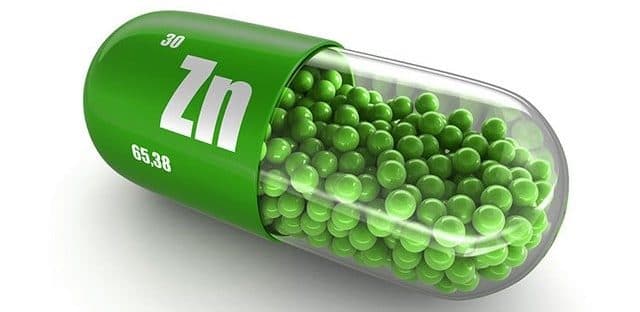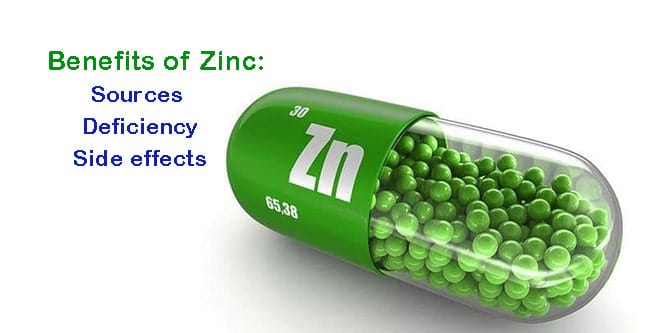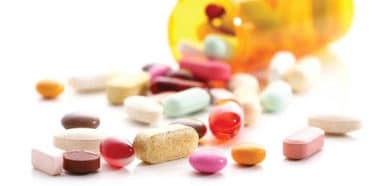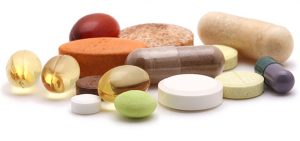
Red meat, sea products, meat products, died nuts and some fruits are among the best sources. Zinc also protects against common cold and used inside many vitamin and pastils. Scientific studies showed that sufficient intake during winter time provide significant protection against common cold. In addition, studies proved that taking supplements at the early days of common cold and flu reduced the severity and duration of the disease.
Table of Contents
Health benefits of zinc
Zinc and Macular degeneration
Macular degeneration, known as yellow spot, is a serious condition leading to visual impairment. This disease is related to genetic predisposition, smoking and unhealthy nutrition, and one of the most important reason is zinc deficiency.
Failure to meet the amount of zinc needed by the body during and after adolescence may cause visual impairment over time. Healthy nutrition and zinc intake are very important for healthy eyes and vision.
Chronic fatigue
Constant fatigue and weakness are generally associated with working conditions and sleep irregularities. However, the body may feel fatigued due to insufficient intake of necessary nutrients. The most important mineral is zinc and it may lead to chronic fatigue is its level drops in the body.
It helps body to remain energetic and vital, therefore, it is very important to meet necessary daily intake.
Effect of zinc on immune system
Zinc deficiency can be detrimental for immune system. It hinders immune system’s ability to protect the body from foreign and harmful factors and makes people more vulnerable against disease. Immune system must function properly in order to protect the body against diseases and microbes.
Mild and moderate zinc deficiency negatively impacts macrophage and neutrophile functions. Macrophages and neutrophiles work as parts of immune system to protect body. It is important to consume zinc containing foods to protect against diseases, and supplements are recommended if required amount cannot be met through natural nutrients.
Wound healing
It is effective in maintaining the skin and mucosa membranes. Patients with chronic diseases have low serum zinc levels. In these patients, disease-related wounds worsen more rapidly due to deficiency. Zinc supplement is very important for prevention of wound formation or rapid recovery.
Doctors recommend supplements for some patients with chronic disease and receiving wound treatment.
Zinc against diarrhea
Its deficiency causes increased susceptibility to infections, such as those that cause diarrhea, in children. Reduced immune system functions due to deficiency lead to diarrhea especially in children. Studies show that zinc deficiency-related diarrhea is highly common in Southeast Asia, India, Africa and South America and causes child deaths.
Therefore, supplements are crucial for diarrhea risk. In addition, doctors may prescribe supplements for children with frequent diarrhea incidents.
Does zinc deficiency cause hair loss?
Hair loss in women and men can be common in adolescence and adulthood. Studies show that primary cause of hair loss is poor nutrition and mineral deficiency. Zinc is a very important mineral that enhances the hair follicles. Daily consumption of zinc sources reduces and prevents unexpected hair loss.
Skin health
It is an important mineral that protects skin health for its effects on tissue regeneration and wound healing. Acne, pimple, allergy and wounds of the skin can be reduced and healed with it.
Healthy nutrition is essential for the prevention of skin problems. Addition of sources, such as red meat, sea product and vegetables, to the nutrition supports skin to protect and rejuvenate itself.
Zinc intake during pregnancy
Pregnancy is one of the most important periods during which required zinc intake must be met. Zinc intake during pregnancy is of vital importance in terms maternal and fetal health. Its content is highly needed by the developing fetus. It is very important for the configuration and repair of DNA functions and affects the development rate of cells.
Therefore doctors give nutrition recommendations for women having zinc deficiency during pregnancy, and help them for supplement intake. Pregnant women with deficiency put both themselves and their babies at risk.
Food sources of zinc
Vegetables with zinc
Vegetables are major nutrient sources for their vitamin and mineral contents and therefore very important for health. And zinc is one of the most important mineral present in vegetable and contributes to the health of the body. Nutrition plan must include vegetable in order to meet recommended daily intake.
Spinach, mushroom, gumbo, green peas and asparagus are rich in it. For example, one portion of green lentil contains 4.78 mg, one bowl of spinach contains 1.5 mg and one portion of mushroom has 1.3 mg zinc.
Animal sources foods
Animal sources foods are another nutrient group with high content. Red meat and sea foods are high in it. And this forms an ideal nutrition type to meet daily requirement of the body. Beef and mussel have the highest content.
For example, 80 mg of red meat meets majority of the daily zinc requirement. Sea foods and chicken are also ideal for daily zinc amount. Egg is another rich source among animal sources foods.
Dried nuts
Almond, peanut, sunflower seed, pistachio and cashew are rich sources. Eating dry nuts as snacks is also very important for weight control and health. In addition, a handful of dried nuts will be enough to meet some of the daily zinc requirement.
Dairy products
Dairy products contain less zinc in comparison to other sources, therefore they support daily intake. A slice of feta cheese in morning and a bowl of yoghurt for dinner supports intake. Dairy products are mandatory sources for people who do not consume meat.
How much zinc should I take a day?
Vitamins and minerals available in foods play an important role for the health. Each one them has a certain daily intake amount; this changes depending on the function of the vitamin and mineral. Zinc also should be taken daily. However, this amount changes depending on the age group and gender.
Recommended daily zinc intake
- 2 mg for 0-6 months old babies
- 3 mg for 7-12 months old babies
- 3 mg for 1-3 years old children
- 5 mg for 4-8 years old children
- 8 mg for 9-13 years old children
- 9 mg for 14-18 years old women, 11 mg for men
- 8 mg for 19+ years old women, 11 mg for men
- 12 mg during pregnancy.
Zinc deficiency
Its deficiency occurs due to nutritional and lifestyle habits. Some individuals can suffer from it because of their habits and conditions.
Causes of zinc deficiency
- Alcohol
- As vegetarian people do not consume red meat and sea products,
- Iron supplement; high amounts of iron suppress zinc absorption.
- Sickle-cell anemia, a genetic blood disease, causes deficiency.
- Gastrointestinal diseases like reflux, gastritis, stomach ulcer and bleeding, diarrhea, indigestion
Symptoms of zinc deficiency
- Slow wound healing
- Hair loss
- Chronic fatigue
- Frequent diarrhea
- White spots on nails
- Slow development and growth
- Age-related visual impairment (macular degeneration)
- Weak immune system
- Disrupted sense of taste and smell
- Anemia
- Acne and pimple formation
- Dry skin
Zinc deficiency treatment
- Healthy nutrition is the first priority to prevent it. Foods containing zinc must be consumed daily.
- Red meat and sea products, vegetables, dairy products and some legumes are very important. These should be consumed regularly every day.
- Conditions that cause deficiency must be eliminated. These include alcohol use, poor nutrition and excess iron intake.
- Vegetarian people are recommended to give weight on vegetable intake or use supplements to meet their requirements.
Side effects of zinc overdose
As with all vitamins and minerals, it should also be taken in sufficient amounts. Excessive zinc intake may lead to unexpected conditions. And this is called toxicity or overdose. Consuming more than 200 mg of it on a single day causes nausea, stomach pain and vomiting. Daily intake of high amounts of it leads to disrupted copper absorption, iron deficiency and immune system problems. In order to protect and maintain the health in the best possible way, the amount of it determined by the doctors should be taken. Less or more consumption puts health at risk.
References: 1- Zinc: Recommended Intakes, Sources of Zinc, 2- Zinc for the common cold, 3- Zinc in diet




